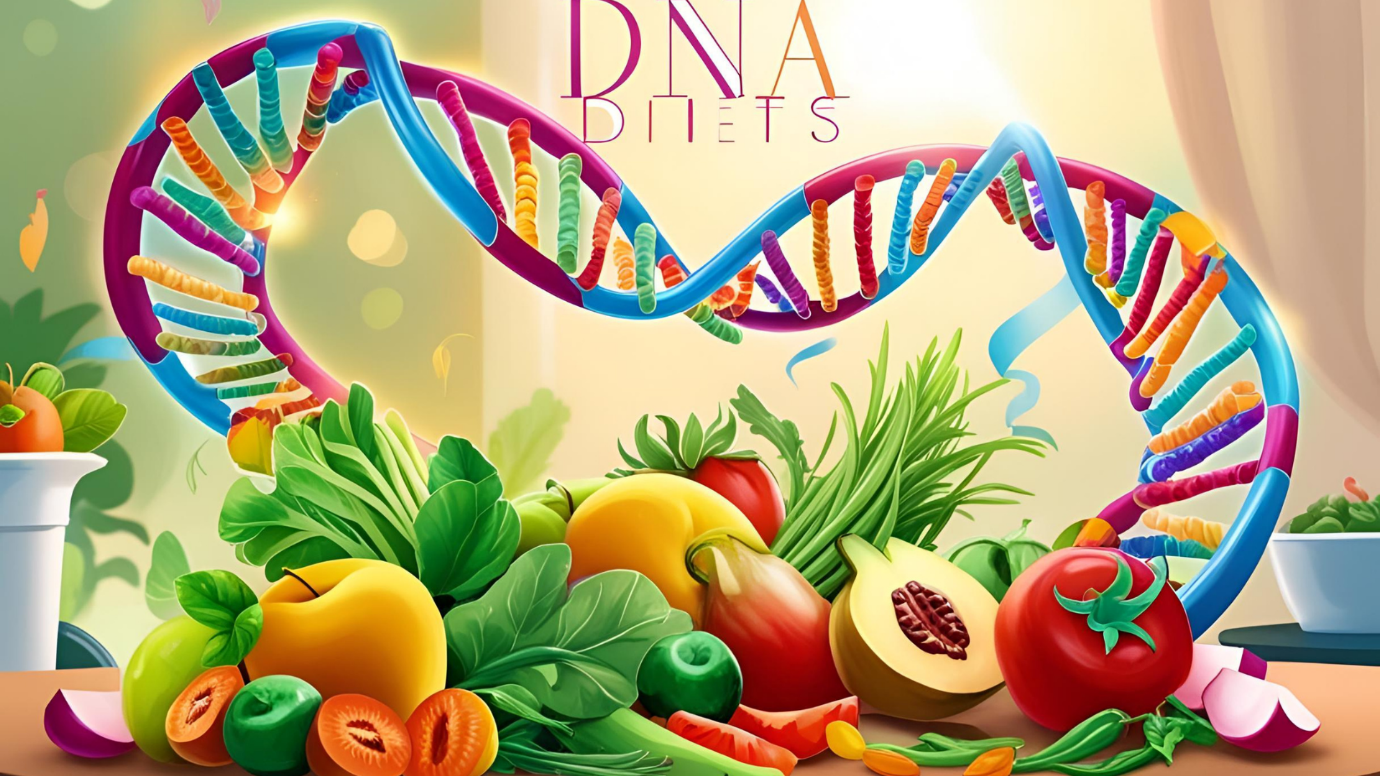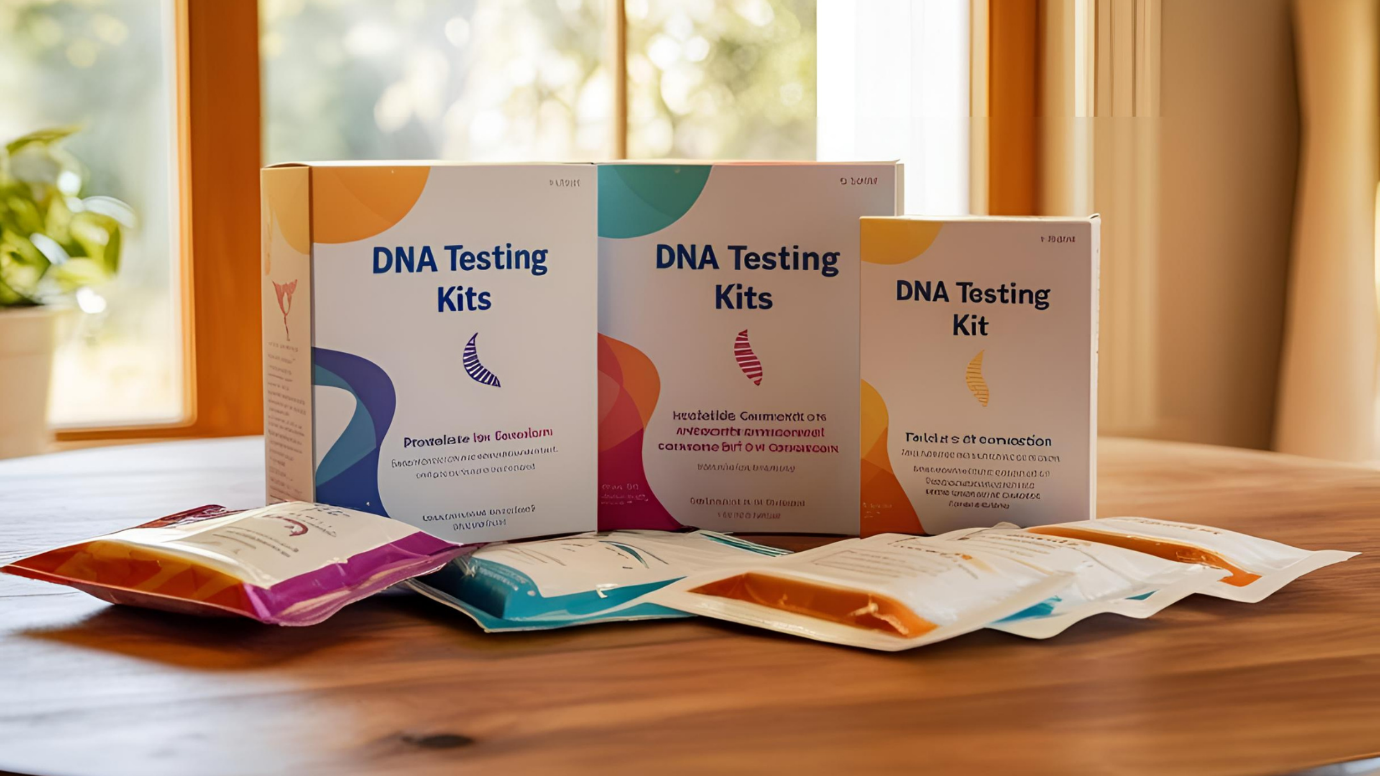In a world that frequently sees limited success with universal methods, DNA-based diets are breaking new ground.
Nutrigenomics decodes your genetic information to provide personalized nutrition plans based on your individual genetic makeup– could this be the way forward?
Discover how your genes can help you make the right choices when it comes to what you eat for overall wellbeing!
Understanding Nutrigenomics
Nutrigenomics is changing diet and health by looking at the interaction of nutrition and genes.
It doesn’t give general advice like old-style diets, but takes your genetic code into account: how you digest food and use nutrients, how you react to different foods, and how your weight is managed.
Essentially, nutrigenomics wants to find out which genes affect how we process food and what reaction our bodies have to diet.
Scientists can now study individual genes to see how vitamins, minerals and macronutrients are processed– or not! This enables them to devise eating plans that are very specifically tailored to people’s genetic make-up.
The Science Behind DNA-Driven Diets

Your DNA holds instructions for making proteins that control many bodily functions– among them metabolism, fat storage, and appetite.
Variations or mutations in these genes can profoundly affect how different foods impact you. Nutrigenomic testing looks at these genetic variations to offer clues about your ideal diet.
a. FTO Gene
Take the FTO gene, linked to fat mass and obesity.
Some variants may mean you’re more inclined to store fat and could benefit from a diet that’s higher in protein and lower in fat.
b. LCT Gene
The LCT gene does a similar job for lactose tolerance.
With one variant people digest lactose (a sugar found in dairy produce) just fine; those with another variant might want to restrict how much cheese and milk they consume to avoid an upset stomach.
c. APOE Gene
Another example: The APOE gene affects cholesterol metabolism. Individuals with specific APOE forms may need to restrict saturated fats to manage cholesterol levels.
Understanding this lets us design eating plans that match what your genes say you need.
Benefits of Personalized Nutrition
1. Better Weight Control
Learning how your body processes fats, proteins and carbs– and using that information to design an individualized diet plan– can really help with weight management.
This kind of eating strategy may also boost metabolism and energy levels. And when you tailor your food intake for those reasons, it becomes easier to reach a healthy weight and stay there.
2. Healthier Living
When genetic research meets nutritional advice, the results can be good for everybody– especially people dealing with ongoing health issues.
First up are chronic conditions like type 2 diabetes: If you’re at risk because of your DNA, your nutritionist can suggest foods that help keep blood sugar on an even keel.
Cardiovascular disease is another example. If we know certain dietary fats aren’t great for your heart owing to family history findings, a dietician can recommend alternatives that might make a difference.
3. Enhanced Nutrient Uptake
Knowing your genetics can pinpoint likely nutrient shortfalls.
If your genetic makeup shows that you’re not very good at absorbing particular vitamins or minerals, altering your diet to include more of those nutrients or taking suitable supplements can help ensure your body functions optimally.
4. Better Athletic Output
Sportspeople using DNA knowledge about their nutrition can fine-tune diet to help training and recovery– and gain an advantage.
By personalizing intake of particular muscle-boosting and endurance-improving nutrients, sportspeople can perform better overall (and tune muscles faster).
How DNA Testing Works for Diet Personalization?

DNA testing for personalized nutrition usually includes a straightforward saliva or cheek swab test.
A laboratory examines the sample to pinpoint particular genetic variations linked to how nutrients are processed, food sensitivities and other diet-related factors.
Companies offering nutrigenomic testing supply in-depth reports about your genetic tendencies– plus suggestions for how you might apply them to your eating habits.
Steps to Get Started:
- Choose a Reputable Testing Service: Opt. for a company that focuses on nutrigenomics and provides thorough genetic analysis for nutrition purposes.
- Provide Your Sample: Collect your DNA as instructed— typically by using a cheek swab or saliva kit provided with the service.
- Receive Your Report: You’ll receive a detailed report after your DNA has been analyzed. This will identify key genetic markers along with personalized diet recommendations.
- Implement Your Personalized Diet Plan: Put your new healthy eating plan into action! Use the suggestions to guide your diet for optimal health and wellness.
Considerations and Limitations

Although DNA-based diets have potential, it is important to be cautious. Here are a few things to think about:
1. Genetic vs. Environmental Factors
Nutrition is guided by genes, but it is also influenced by non-genetic factors such as stress levels, how much exercise a person gets, and whether they smoke tobacco or drink alcohol.
For optimal health, any personalized eating plan should take into account both kinds of factors.
2. Scientific Advancements
Nutrigenomics is not old; there is still much to learn. Researchers are continually finding new gene-diet interactions and genetic markers.
As this knowledge grows, so will the accuracy of dietary advice based on a person’s DNA.
3. Consultation with Professionals
Understanding genetic information can be complicated. Talk to healthcare providers or dietitians who can help you use this information to be healthier.
4. Ethical and Privacy Concerns
Genetic testing gives out a lot of personal information. Make sure any service you use takes strong measures to keep your data private and safe.
The Bottom Line
Those who adopt DNA-based diets are at the forefront of personalized nutrition. Such individuals utilize their genetic code to make optimal dietary decisions.
This field, known as nutrigenomics, can help people meet specific health objectives and feel their best– indicating a future that’s both customized and healthy!




